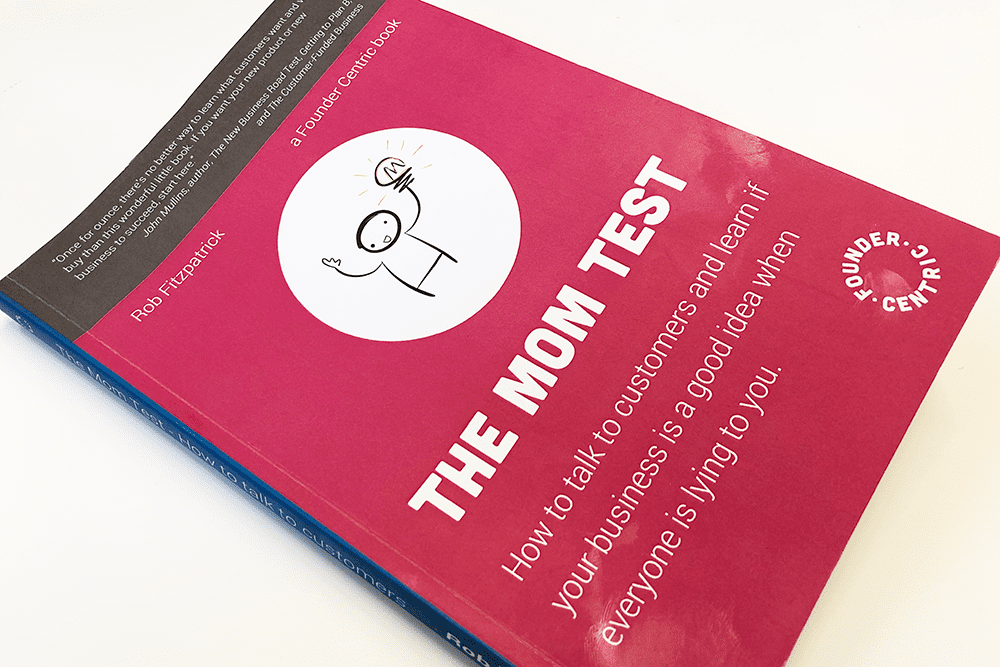“I have an idea.”
The 4 words that strike fear into my wife
How do you know if your killer new idea is really any good?
Although my recent book, The Innovation Revelation, looked at finding solutions to customers’ problems at a macro level (i.e. from understanding the intersection between an organisation’s needs and customer needs all the way through finding possible solutions and building prototypes), I’ve been asked for more detail on how we can go about validating solutions.
Now, there is an argument that you should leave research to the professional researchers. Although I value such specialists, this isn’t always possible. For example, if you’re a one-person startup in the early phases and want to test an idea. But let’s park that debate for now and imagine professional researchers aren’t an option (yet).
My go-to starting point for testing ideas is a great little book called ‘The Mom Test’ by Rob Fitzpatrick.

The book is based on the premise that we generally ask the wrong questions right from the get go. For example, “I’ve got this idea of an app that does x, y and z. Would you buy that?” Most of the time our questions ask for opinions, are based on asking how people think they will behave in the future, ask for solutions or are fishing for compliments and/or approval. Or, as Fitzpatrick refers to them:
- compliments
- fluff (i.e. generic statements or hypothetical futures)
- ideas
None of these is beneficial or what we need. Although it might be nice to hear people support our idea — maybe even say that they would buy it — what they say is frequently misleading. They’re not being malicious, it’s just that words are cheap and often don’t reflect how people would act when faced with the actual situation: “I’d buy X” is very different from them actually buying X.
To solve this misdirection, Fitzpatrick proposes that we shouldn’t be talking about our idea at all; we should be asking people about their lives, discussing specific events from their past and listening more! This factual information is much more useful to us than the responses we’ll receive if we start telling people about our killer idea because they can’t mislead us with their answers.
Sure, at some point we are going to want to test our ideas on people, and Fitzpatrick goes on to cover how we approach people all the way up to closing sales.
Although it’s only a short book (130 pages), it is crammed full of helpful suggestions and useful guidance. For example, one tip is to always have three pre-planned questions ready. These should be about the three most important things you want to learn from people. And, of course, they need to be structured in a specific way so that they give you data that is useful, not compliments, subjective fluff or ideas.
The Mom Test by Rob Fitzpatrick is available on Kindle and paperback on Amazon.
Sign up to our newsletter before the end of January for a chance to win a copy of the book.